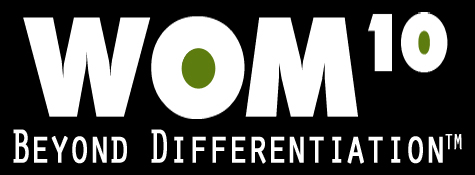Interesting question, isn’t it? The word Authenticity has been around for a long time and it has resurfaced in the past few years to be linked to behavior and to customers. But is it really the “right” word for our times and does it really communicate what is really meant by the author? I don’t think so.
By way of background, we had this issue several years ago in the Customer Loyalty and Customer Satisfaction discussions. What I would do is get a room of people together (not more than 25) and I would ask them all to write down the definitions of “Loyalty” and “satisfaction” and a few other terms. You guessed it – what came back were a whole host of definitions that were all over the map. So then, what “is” the right definition? The only answer was, it depends.
Fast forward to today and ask the same question about the word “Authenticity” and I’ll bet you a venti Starbucks latte that I would get the same results as I did with the words Loyalty and Satisfaction. Big problem. If you have one definition and your audience has another one, you will NEVER see eye-to-eye and thus won’t be able to deliver the “experience” they are desiring from you. It is absolutely critical that you are on the same page with your definitions so you can deliver on these.
OK, so what’s the answer you ask? Find a word or words that aren’t as ambiguous and that you don’t have to spend a lot of time and resources to make sure you are on the same page. We came up with the word “PROMISES” to do just that. No, we didn’t invent the word, we just decided to use it in the context of customers to make life simpler and more straight forward. When I asked the same question of the group above and used “Promises” they virtually all got it right. Why? Because it is a simple and powerful word that everyone understands. Is it dangerous? Absolutely. Anything powerful has the potential of being dangerous. I will talk more about this in another post.
I just read Seth Godin’s latest blog titled, “Authenticity.” Interesting discussion on this exact topic. Why? Because Seth uses the two words, “Authenticity” and “Promises” interchangeably! He believes the definition of Authenticity is keeping your promises and “acting” a certain way rather than “being” a certain way. Very interesting argument. But if I asked all of you if you would have equated these two terms, I doubt I would have gotten much agreement – thus my initial point – definitions that are ambiguous NEVER, NEVER, NEVER result in easy to deliver experiences.
When you use a word, make sure you feel it has the strength to be consistent among your audiences, especially customers and employees. Otherwise, you run the risk of misunderstanding and delivering the “wrong” experience to your audience. That is the reason we settle on the word “PROMISES” and live by the belief that if you understand what these are and can keep them with our audience (personal or professional) you will build TRUST which ultimately builds LOYALTY – it’s that simple. Comments welcome…
Blaine
